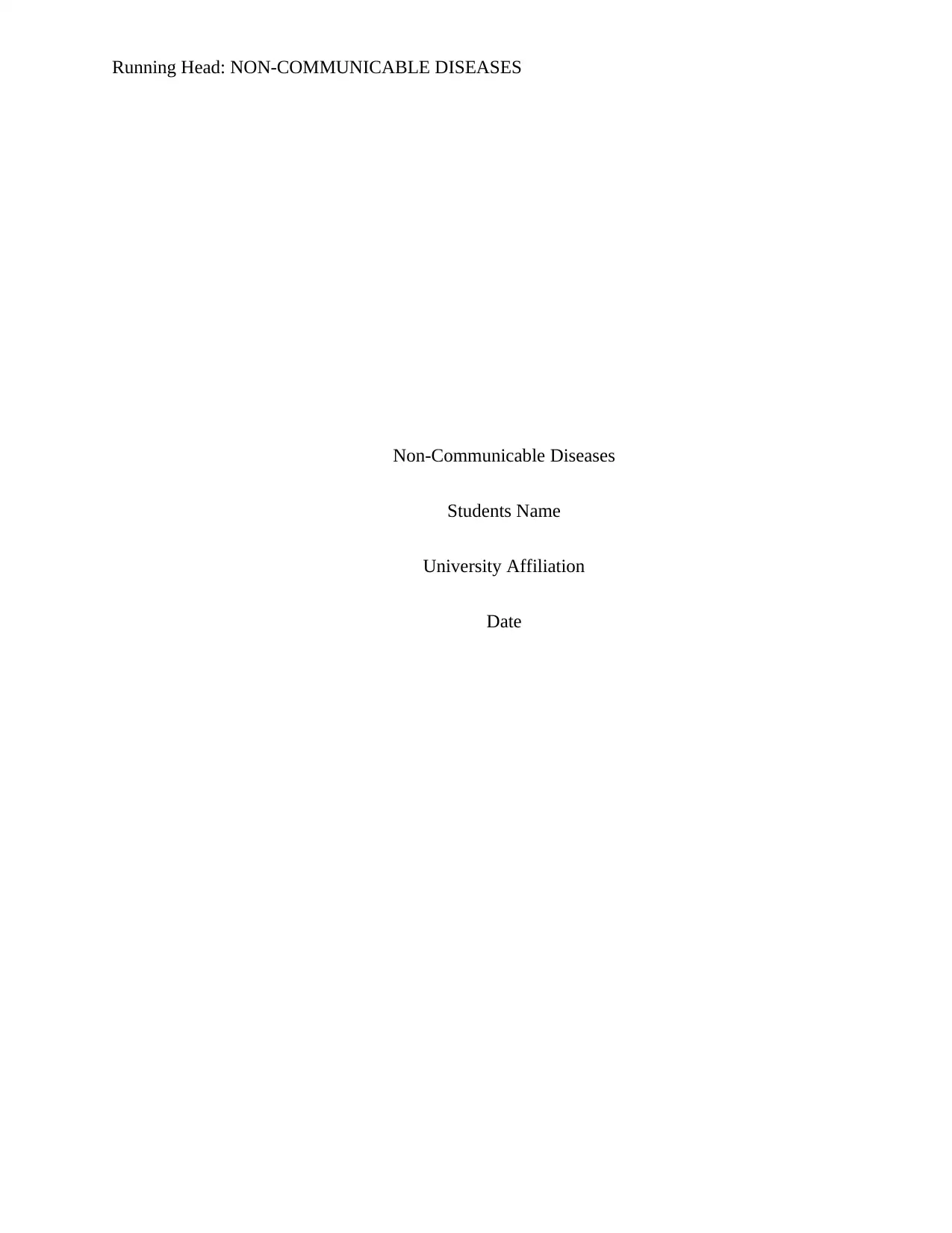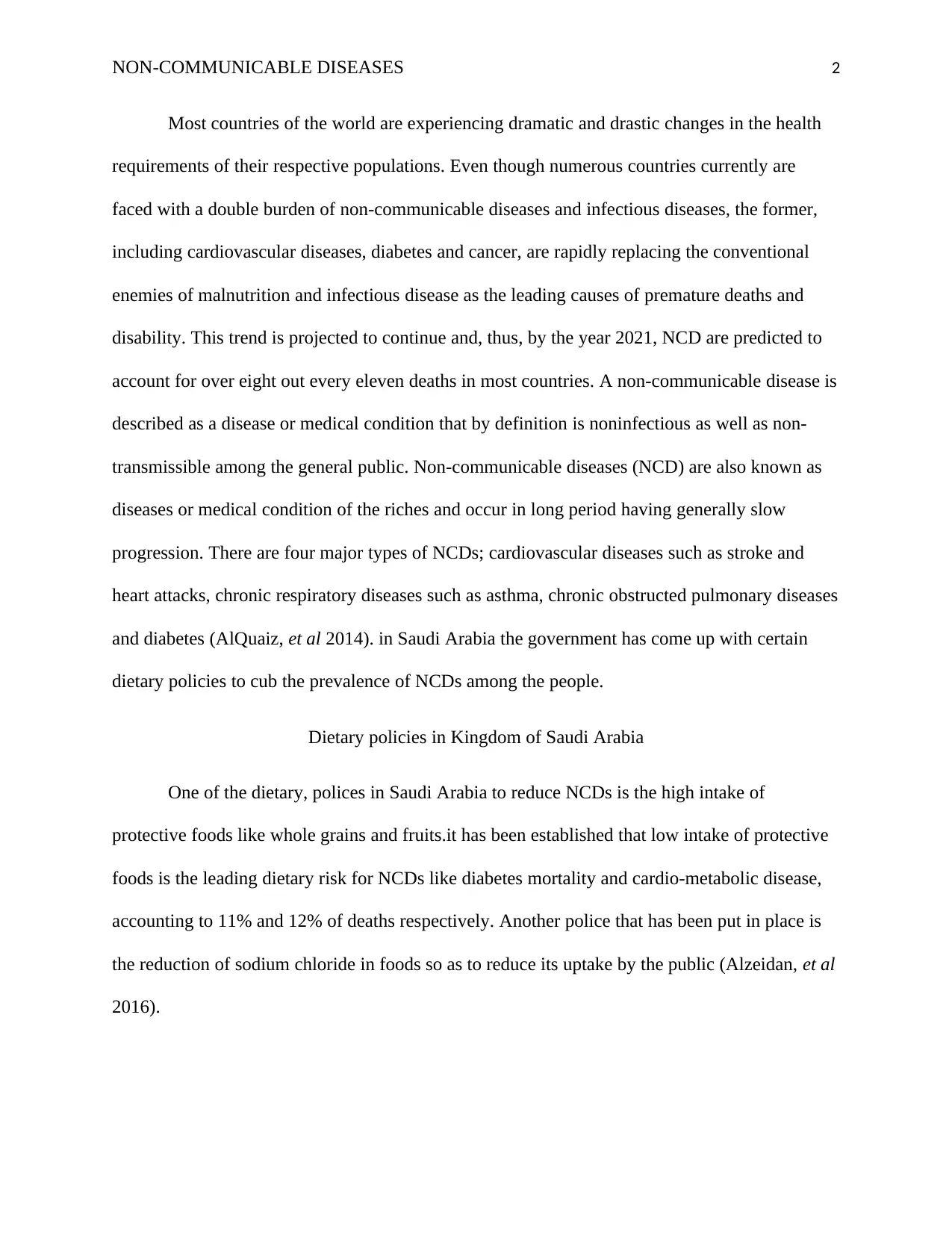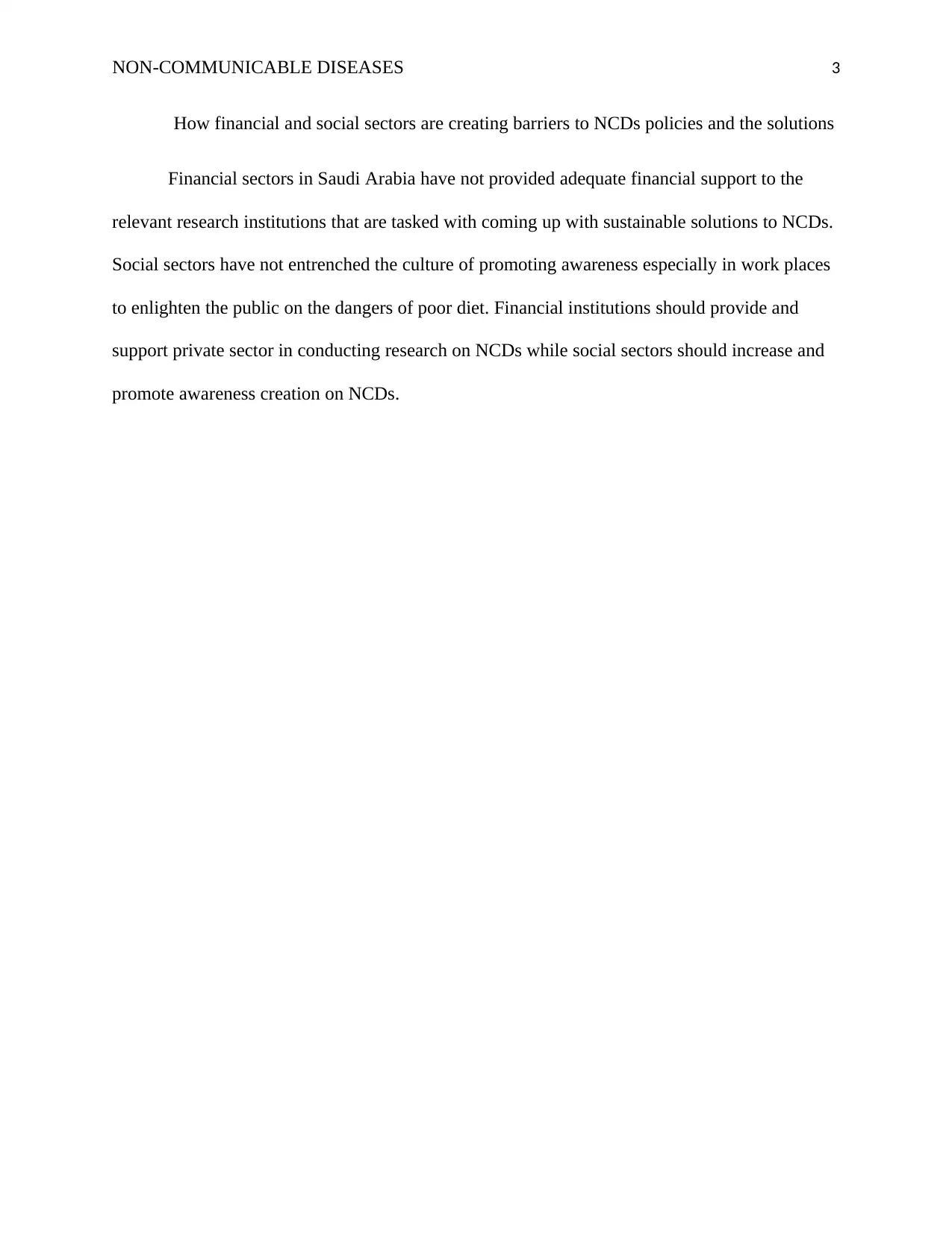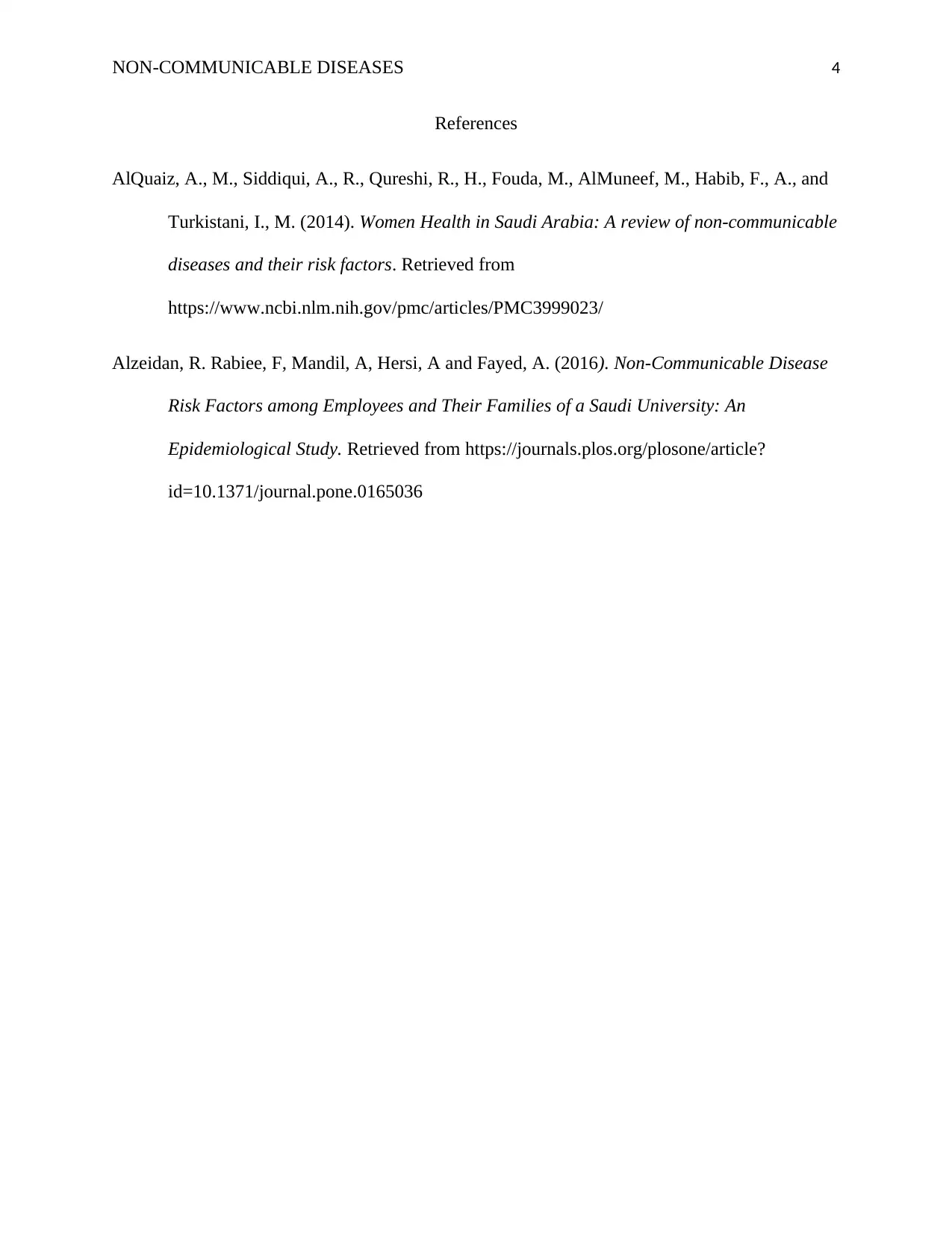Non-Communicable Diseases Report: Policies and Challenges
VerifiedAdded on 2023/06/04
|4
|535
|489
Report
AI Summary
This report examines non-communicable diseases (NCDs), focusing on their increasing prevalence globally and specifically within Saudi Arabia. It highlights the shift from infectious diseases to NCDs like cardiovascular diseases, diabetes, and certain types of cancer as leading causes of death and disability. The report discusses the Saudi Arabian government's dietary policies aimed at mitigating the impact of NCDs, such as promoting the consumption of protective foods and reducing sodium intake. Furthermore, it analyzes the financial and social barriers hindering the effective implementation of these policies, including insufficient financial support for research and a lack of public awareness. The report concludes by emphasizing the need for increased funding and social sector initiatives to address these challenges and promote public health.
1 out of 4











![[object Object]](/_next/static/media/star-bottom.7253800d.svg)